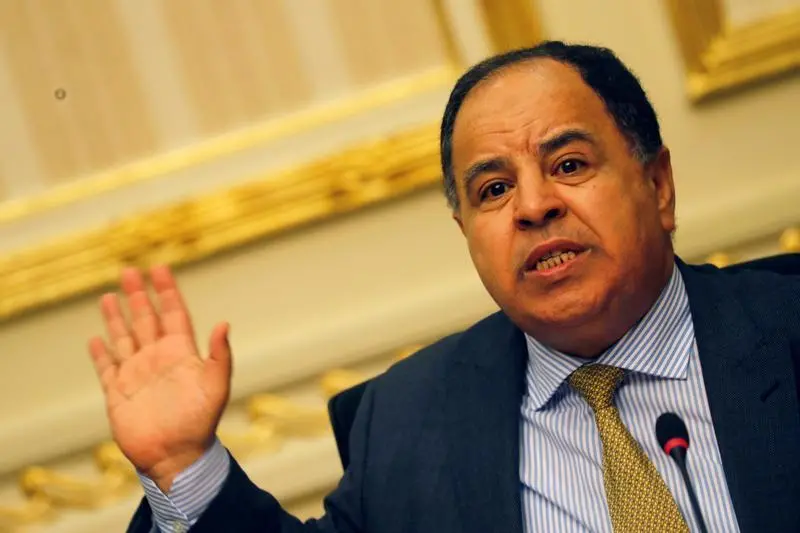PHOTO
Egypt’s Finance Minister Mohamed Maait said that the decision of Moody’s, a global credit rating agency, to downgrade Egypt’s sovereign credit rating in local and foreign currencies from B3 to Caa1 with a stable outlook was based on the external and internal challenges that the Egyptian economy faced since the coronavirus pandemic and its consequences, such as a severe inflationary wave and the war in Europe, which negatively affected the macroeconomic indicators.
Government implements structural reforms to cope with challenges
He stressed that the government is working to implement more structural reforms and measures to cope with the current challenges facing the Egyptian economy in general and those mentioned in Moody’s report.
Maait added that Moody’s changed its outlook from negative to stable based on the important structural reforms that the Egyptian government recently implemented, which stimulate investment, improve the business environment, empower the private sector, and enhance its role and contributions to economic growth. He cited some examples of these reforms, such as legal amendments that allow the cancellation of tax and customs exemptions on economic and investment activities of state-owned entities and companies, which leads to enhancing fair competition in the Egyptian market; implementing state exit deals worth $2.5bn within the government IPO programme during the first quarter of the current fiscal year, which helps increase foreign exchange inflows and provides a portion of the foreign financing required to cover the needs of the Egyptian economy; continuing to achieve a primary surplus and growth in tax revenues. He pointed out that Moody’s expected the government to continue these reform measures in the future.
Strong financial performance achieved despite inflation
The Finance Minister also highlighted the strong financial performance achieved during the fiscal year 2022/2023, as the Ministry of Finance was able to deal in a balanced manner with all the variables and challenges in the global and domestic arenas, such as a rise in inflation rates and interest rates, and a decline in the value of the local currency by more than 50% against the dollar. He said that the ministry achieved a primary surplus of 1.63% of GDP compared to 1.3% of GDP in the fiscal year 2021/2022, and reduced the total budget deficit to 6% of GDP compared to 6.1% in the fiscal year 2021/2022.
Maait said that these financial results were achieved despite the increase in financial allocations directed to social protection through expanding the Solidarity and Dignity programme by adding one million families, bringing the total beneficiary families to 5.2 million families, equivalent to 20% of the total population; increasing the minimum wages and pensions to protect the most vulnerable groups from high inflation rates and the repercussions of the decline in the value of the pound against the dollar. He explained that the Ministry of Finance was able to achieve strong growth in tax revenues by 27.5% as a result of digitization efforts, improving tax administration, and combating tax evasion and avoidance.
Moody’s had expected financial discipline to continue by implementing procedures to digitize the tax system, in addition to rationalizing expenditures during the fiscal year 2023/2024, ensuring achieving an initial surplus of 2.5% of GDP, which is considered one of the positive factors that may contribute to improving Egypt’s sovereign credit rating and outlook for the Egyptian economy over the following years. This will help reduce the debt-to-GDP ratio to less than 80% by the fiscal year 2026/2027.
Private sector role enhanced to boost economic activity
Ahmed Kouchouk, Deputy Minister for Financial Policies and Institutional Development, stressed the continuation of efforts to enhance the role of the private sector and increase its contributions to economic activity by implementing the required structural measures and reforms during the coming months to improve the business environment, increase competition, and enhance competitive neutrality in the Egyptian market. He said that this would achieve strong growth rates that are sustainable and driven mainly by the private sector. He also pointed out the need for the efforts of all state agencies to join forces to encourage and attract private sector investments, including foreign direct investments, and to advance the export sector and productive activities.
Moody’s may raise Egypt’s rating if foreign currency flows increase
Kochouk added that Moody’s explained, in the context of its report, that it may raise Egypt’s sovereign rating if the ability to attract more foreign currency flows to the Egyptian economy is increased, as additional resources. He said that this can be achieved by accelerating the government offerings and exit programme during the coming period, which enhances the ability of the Egyptian state to cover its financing and external needs during the next two years. It also contributes to strengthening the country’s foreign exchange reserves, reducing the need for external borrowing, and thus reducing the debt service bill. This would help increase the confidence of investors and institutions in the ability of the Egyptian economy to deal with external debt. He explained that Moody’s praised the continuing financial discipline and the ability to achieve tax revenue growth rates.
Moody’s indicated the importance of targeting stability in the net foreign assets of the banking sector and increasing the country’s foreign exchange resources, especially the more sustainable ones that are not linked to debt, such as increasing the proceeds of merchandise and service exports and direct foreign investments.
© 2022 Daily News Egypt. Provided by SyndiGate Media Inc. (Syndigate.info).





















